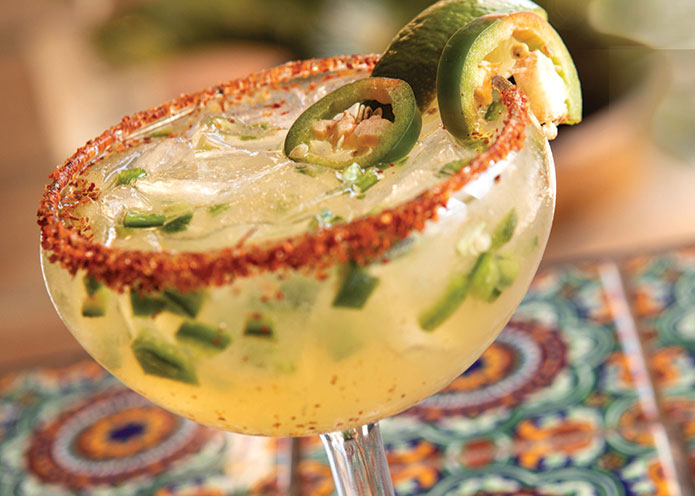Rose Sweet
Rose Sweet

Conversation isn’t safe anymore
I love DARK chocolate, the darker the better. But given today’s climate of immediate suspicion and criticism, one had better be ready to elaborate. Well, 60% cocoa or 80%? What do you think about milk chocolate? White chocolate? What about nuts, with or without? What do you mean “love?” Yikes! If I dare say I dislike white chocolate (which I really do), somebody will be offended and jump to a conclusion of reverse racism. Seriously.
Complex issues, not enough time
The problem with media brevity is that we who publicly teach the faith don’t always have the luxury of fully expressing ourselves or answering all the (unknown) questions in others’ minds. Time and space restrain us. Sometimes we are not clear. In my work as a Catholic coach, and especially working with the separated and divorced, I must address some serious and complex issues. Annulment is one of those! For those who may wonder about what I believe and teach on Catholic Decrees of Nullity, why don’t you invite me over for a nice dinner, a glass of wine (RED, not white) and we’ll talk.
Morsels of truth about divorce
Until then, how about “I believe all that God has revealed and that the Catholic Church proposes for our belief”, including:
- God hates divorce, but he also hates the arrogant, insidious, vile abuse that often leads up to it. Some civil divorce is completely unavoidable. Most of the time, I believe, it is not.
- Divorce is a grave offense against the natural law (CCC 2384, 2384), a plague on our society, and a deeply injurious wound that leaves deep scars. God is still in the business of healing all those who genuinely seek him.
- After civil divorce, the Church still upholds the marriage bond as valid until proved otherwise through a competent tribunal. (CCL 1060) That’s good news.
- Neither spouse may pursue a new romantic relationship (or even think about it) without violating their vows, the dignity of marriage, and frustrating and bringing temptation to another. (CCC 1649) That’s never loving.
- A spouse may never depart the marriage for selfish reasons (and without making a good faith effort at remedies) without being in a state of grave sin and bringing great and often long-term, generational harm to the whole family, the community, and the Church. (CCC 2385) Just look around.
- Some spouses abandon the other on many levels while still living in the home. A spouse may morally depart the common life when it has become literally intolerable, extremely abusive, unsafe, or even in some cases illegal. (CCC 1649, 2373 – Not getting into specifics in this blog; use your head.) But the vows must be honored until death and all financial and parental obligations must be met. Every civil divorce nonetheless creates a terrible wound.
- With grace it is possible, and extremely praiseworthy, to continue living alone and apart (even though still married) when a spouse leaves or you have chosen—for good reason—to depart. Many have rich, full lives without their spouses. Being without a romantic partner is not the end of the world or an impediment to purpose, love, holiness, or true joy.
- Those who choose to remain faithful to their vows after a civil divorce can do so for dysfunctional reasons (fear of facing reality, of public shame, to assuage guilt, to assign blame and mask one’s own dysfunction, etal) or healthy, holy reasons: because they are convinced that both parties entered marriage freely, fully, and with the right intent and ability, and that the marriage bond is valid until death. If an annulment is later granted, some still choose fidelity to the person and what they believe is still a valid marriage. Since it was their marriage, that choice should be respected.
- The sufferings from any divorce are an opportunity for holiness by intentionally uniting them with Christ’s and refusing to fall into self-pity and bitterness. If you had to leave or were unjustly abandoned, both of you are suffering. The carrying of your cross in this way is salvific, and a beautiful and powerful witness to your children and the world.
- Even Jesus said some unions are not true marriages (Matt 5:31-32). In many cases today something vital was missing or impeding the couple’s free, full consent to marriage. Grave fear, force, conditions, addiction, insurmountable, deep, mental and emotional wounds, and more can damage a person’s ability to enter and rightly live out marriage. (CCC 1626, 1628)
- Everyone has marriage problems, but for these graver impediments, it can take years or even decades for these evils to flower into a dark and unbearable bloom. After divorce, and upon subsequent investigation by a competent Church tribunal and with adequate proof, the Church may declare there was no valid marriage bond and the parties are freed from marital (not parental or financial) obligations. (CCC 1629) The children are not rendered illegitimate.
- The marriage bond is presumed valid and the burden of proof is on the one seeking nullity. (CCL 1060) Those who do not want the annulment are encouraged and have the right (and even the responsibility) to fully participate in the process to actively defend their marriage bond.
- The possibility of annulment scares and angers many who went into the marriage with good intent. It can seem like a slap in the face—or worse—to their dignity, their vows, their family. It can be painful to admit that something was wrong from the start when one’s heart was so right.
- Most people understand that annulment makes it “really over” and there can be great resistance to, and fear of, facing that painful finality.
- Clearly, after a civil divorce, no one needs an annulment to continue living faithfully to their vows, to receive the sacraments, and to live happily.
- Can the annulment process be abused? Yes. In some cases, parties will lie and tribunals make mistakes. Are these cases common? No. Are annulments “handed out like candy?” No; this is “fake news” and angry propaganda. The process is painstakingly thorough and just, with the marriage bond always being given the favor of the law (CCL 1060).
- After divorce, I believe one should consider annulment . . . which is different from seeking or desiring it. That means not relying just on your personal desires or emotions but also learning from a reliable source what the Church really teaches about the marriage bond, divorce, and nullity so that you can (a) make wise decisions, (b) have the certainty and strength of Church support, and (c) move forward with confidence in either defending the bond and remaining faithful, or allowing God to bring you more fully into the truth of an attempted marriage.
In a certain sense, neither civil divorce nor annulment are not the enemies . . . sin is.
For more get the book.
____
CCC – Catechism of the Catholic Church
CCL – Code of Canon Law








